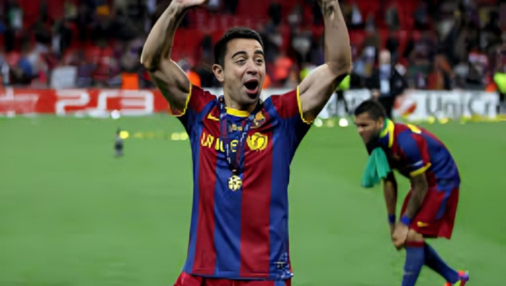Xavi: The Maestro Behind Barcelona’s Modern Era
Few players in football history have embodied the spirit, philosophy, and identity of a club quite like Xavi Hernández did for FC Barcelona. A true product of the famed La Masia academy, Xavi rose through the ranks not only to become one of the greatest midfielders the sport has ever seen but also to carry forward the legacy of Johan Cruyff’s footballing ideals. Today, as both a legendary player and a promising manager, Xavi represents the soul of Barcelona football.
In this blog, we’ll explore Xavi’s incredible journey—his rise as a player, his defining role in football’s golden era, and his evolving identity as a coach.
A La Masia Prodigy
Born in Terrassa, Spain, in 1980, Xavi joined La Masia, Barcelona’s youth academy, at the age of 11. He was immediately recognized for his intelligence, vision, and positional awareness. His playing style was influenced heavily by the total football philosophy introduced by Johan Cruyff during the 1990s. Xavi's focus was never about flashy skills or long shots—it was about control, rhythm, and geometry.
He made his first-team debut in 1998, and from that point on, there was no looking back.
The Heart of Pep Guardiola’s Midfield
While Xavi played under several managers, it was under Pep Guardiola (2008–2012) that he truly reached his peak. Guardiola’s system, built on tiki-taka—a possession-based style of football rooted in short passes and movement—was tailor-made for Xavi. He became the central figure in a midfield trio often featuring Andrés Iniesta and Sergio Busquets, orchestrating every move with calm precision.
During this golden era, Barcelona dominated world football. With Xavi pulling the strings, the team won:
- 3 UEFA Champions League titles (2006, 2009, 2011)
- 8 La Liga titles
- 6 Copa del Rey trophies
- 2 FIFA Club World Cups
Xavi and the Spanish National Team
Xavi’s brilliance wasn’t confined to club football. He was also the backbone of Spain’s golden generation, leading the team to three consecutive major titles:
- Euro 2008
- World Cup 2010
- Euro 2012
Spain’s possession-dominant style mirrored that of Barcelona, and Xavi was once again the conductor. In the 2010 World Cup, he completed more passes than any other player in the tournament, showcasing his dominance in the midfield.
A Playing Style That Changed the Game
Xavi’s numbers might not scream superstar—he didn’t score or assist as frequently as some other midfielders—but his influence on the pitch was second to none. His attributes included:
- Passing accuracy – Often above 90% per game
- Spatial awareness – Always in the right place at the right time
- Press resistance – Almost impossible to dispossess
- Leadership – A quiet general who led by example
In essence, Xavi redefined the role of a central midfielder. He didn’t rely on physicality or pace, but rather on intelligence, technique, and rhythm.
The Transition to Coaching
After leaving Barcelona in 2015, Xavi spent four seasons playing for Al Sadd SC in Qatar, where he eventually transitioned into coaching. In 2019, he took over as manager of Al Sadd, winning multiple domestic trophies and honing his managerial style.
His coaching philosophy closely mirrors the football he played: possession, positional play, high pressing, and intelligent movement. Xavi has often cited Guardiola, Cruyff, and Luis Aragonés as influences on his footballing ideology.
Return to Barcelona as Manager
In November 2021, Xavi returned to FC Barcelona as head coach—a move that excited fans and pundits alike. The club was in turmoil, both financially and competitively, after the departure of Lionel Messi and a poor start to the season under Ronald Koeman.
Xavi's arrival sparked a shift:
- He reinstated core values of positional play and pressing
- Developed young talents like Pedri, Gavi, and Balde
- Won the La Liga title in 2022–23, his first full season in charge
Although challenges remain—such as financial instability and European inconsistency—Xavi has managed to stabilize the club and guide it back to domestic success.
Xavi’s Legacy: More Than a Footballer
Xavi's influence goes beyond statistics and trophies. He represents a football philosophy that values intelligence over brute force, structure over chaos, and team cohesion over individual brilliance.
He has inspired an entire generation of midfielders, from Toni Kroos to Luka Modrić and Marco Verratti. Even in an era increasingly driven by data and physicality, Xavi’s brand of football proves that vision and thoughtfulness still matter.
Final Thoughts
Whether you admire him as a player or support his managerial career, there’s no denying that Xavi Hernández is one of the most influential figures in football history. His journey from La Masia prodigy to Barcelona’s midfield general and now its head coach is a story of loyalty, intelligence, and evolution.
In many ways, Xavi is not just Barcelona’s past or present—he is its philosophy. And as the club continues its journey through changing times, one thing is clear: with Xavi at the helm, the future remains deeply rooted in the beautiful game’s purest ideals.

